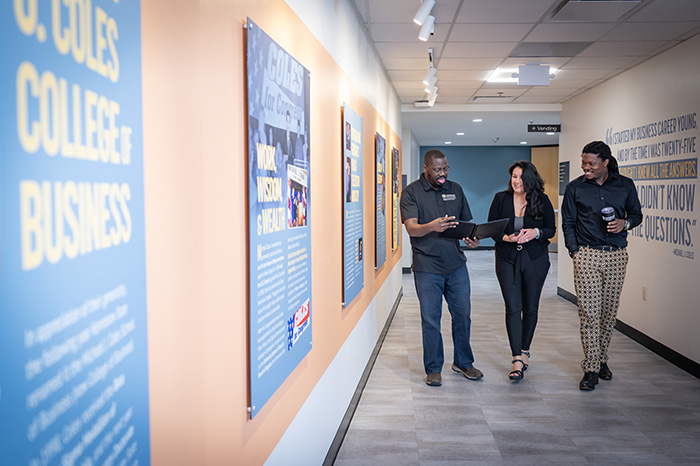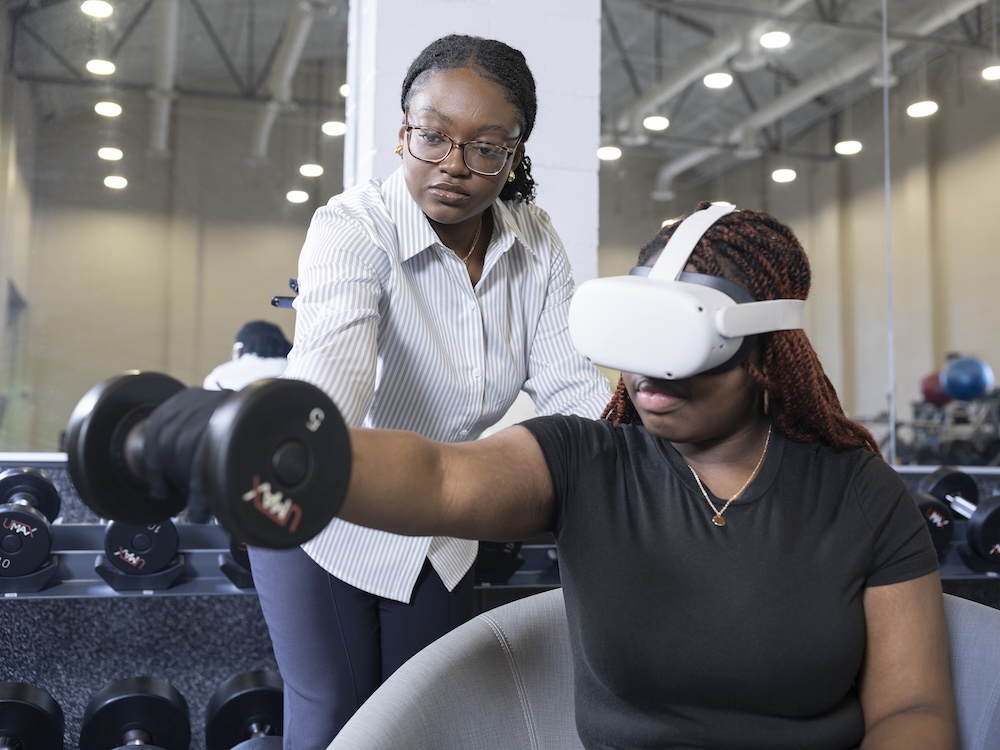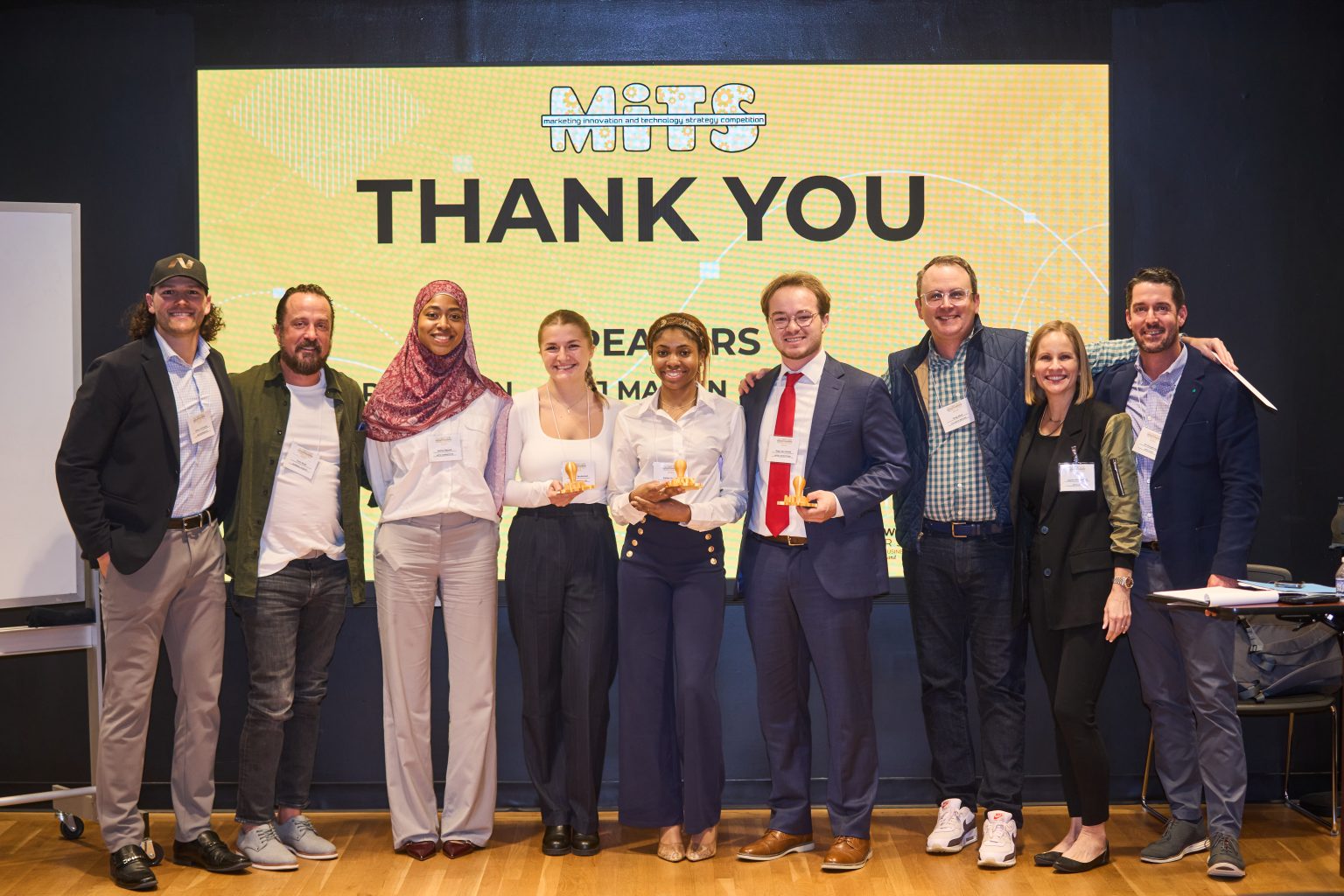
As Family Enterprise Program Goes Online, Connections Grow Stronger
KENNESAW, Ga. | Feb 17, 2021
In a family enterprise, navigating complicated family politics alongside traditional business concerns can create a strong urge to keep doing things how they have always been done. As students in Kennesaw State University’s family enterprise mini-Master of Business Administration program know, success means embracing that complexity and continually finding ways to innovate.
Students in the second cohort of the mini-MBA for Family Enterprise Next-Gen Leaders – all members of Georgia family enterprises – demonstrated this ability to adapt to change when their in-person program went fully online last spring due to the pandemic. Following a virtual graduation ceremony in November, the students reflected on the challenge of completing the focused, team-based certificate program remotely, and on how the experience made them more effective in their organizations.

“At first, the pivot to online was challenging,” said Tim Lane, a fourth-generation member of LTI, Inc., who enrolled in the mini-MBA program for the opportunity to network with like-minded peers. “We had already met in person several times and had begun to build a bond of trust and friendship. The thought of discontinuing the in-person sessions was made me nervous.
“However, due to strength in leadership and a bond that already had the strength to withstand trial, our cohort moved into the virtual model with ease. I was grateful to have a team of peers that could tackle a challenge like this head-on with the ambition to do it successfully.”
The mini-MBA for Family Enterprise Next-Gen Leaders is a nine-month program designed for next-generation family members who work within their family’s enterprise, as well as for those who are not actively involved with the business but are focused on its success. Developed by the Michael J. Coles College of Business’s Cox Family Enterprise Center, the innovative mini-MBA for family enterprise blends traditional business education customized for enterprising families with courses on critical thinking skills, emotional intelligence, and adaptability – vital when navigating the nuance of family businesses. The program also includes classes on ad-hoc topics like estate planning and succession and continuity.
According to Gaia Marchisio, associate professor of management and the CFEC’s executive director, among the most important insights students gain from the mini-MBA program is an appreciation for the value of building strong relationships inside and outside their organizations.
“People grow their self-confidence the most when they are in a safe place that values and appreciates them,” Marchisio said, adding that students benefit from collaborating with others in their cohort from diverse industries and backgrounds.
“This program is a supportive place where people can bring their good, bad, and ugly days,” she said. “They can find their authentic voices. They are all honest to each other and help everyone see what their role is, which creates more responsibility in everything they do.”
With relationships playing such a large role in the mini-MBA program, maintaining those connections for cohort 2 became a top priority for the CFEC following the abrupt switch to online classes in March 2020. The center’s leaders worked with the mini-MBA faculty to adapt the entire curriculum to a virtual environment without sacrificing the emphasis on group discussions and projects.
Greer Hughes, a recent cohort 2 graduate and a partner and asset manager at McWhirter Realty Partners, said the faculty and staff’s efforts to preserve the cohort experience online made a significant difference.
“Obviously virtual isn’t ideal, but the transition and preparation on the part of the Cox Family Enterprise Center was great,” said Greer. “Even though the transition was sudden, we all felt that it went smoothly. Gaia allowed for our feedback and made the necessary tweaks along the way to ensure it was working best for each of us while still delivering the material in an effective way.”
While cohort 2 did not go how students or faculty expected, everyone adapted as in-person classroom sessions gave way to Zoom meetings. To acknowledge the sacrifice students made, the CFEC took steps to make November’s graduation ceremony memorable. Staff mailed graduation caps and certificates to the students, who opened them and reflected on the program live during a Zoom ceremony with many of their families in attendance.
“The CFEC did a great job working together to figure out different ways to accomplish the goal of honoring our graduates and sharing warmth even from the distance,” said Jo Mahan, CFEC’s program manager. “We received a lot of amazing feedback from the students. It definitely gave us the confidence to keep the program virtual for the 2021 cohort knowing we could execute at a high level.”
Due to uncertainty surrounding the pandemic, the center has opted to keep the mini-MBA for Family Enterprise Next-Generation Leaders virtual for the duration of 2021, meaning cohort 3 will take the entire program online.
Ultimately, the cohort 2 graduates said that being online did not diminish the exceptional benefits of the program, and they expect cohort 3 to have the same opinion.
“I hoped to gain a better knowledge of navigating a successful family business – both from the family perspective and the business perspective – and I definitely succeeded in that,” Hughes said. “Even online, the courses help you in different ways. They focus on how your unique skills can enhance the enterprise and help your family succeed.”
– Patrick Harbin
Related Posts

Kennesaw State professor honored by American Accounting Association as 2025 Presidential Scholar

CEO Magazine Ranks Kennesaw State Executive MBA Top Program in Georgia, No. 10 in the World

Kennesaw State business student finds research niche in virtual reality

Third Annual MITS Event Showcases Creativity with Braves Collaboration














